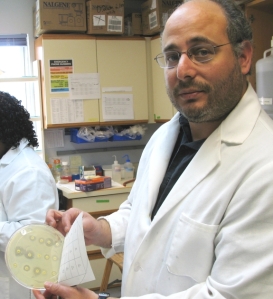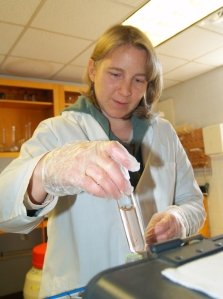The Skidaway Institute of Oceanography has received two research grants from the National Science Foundation totaling more than $761,000. The awards are being funded under the American Recovery and Reinvestment Act of 2009.

Dr. Marc Frischer
The first grant for $356,139 was awarded to Skidaway Institute scientist Marc Frischer to investigate how a warming climate will affect the food web dynamics in the Arctic Ocean.
“We are most appreciative to the National Science Foundation for funding this significant research,” said Skidaway Institute Director James Sanders. “A warming climate is causing significant changes in the Arctic marine environment, including reduced sea ice and increased terrestrial discharge from rivers of nutrients such as carbon and nitrogen. It is very important that we understand the way these changes will affect food web dynamics and, ultimately, the entire Arctic marine ecosystem.”
Frischer will work with collaborators Deborah Bronk from the Virginia Institute of Marine Science and Patricia Yager from the University of Georgia Research Foundation on the project.

Dr. Elizabeth Mann
The second grant for $404,833 was awarded to Elizabeth Mann of Skidaway Institute, along with collaborators Eric Stabb of the University of Georgia and Hongwei Wu of Georgia Tech. They will investigate the way some marine bacteria obtain and utilize the key nutrient iron in environments where this metal is scarce.
According to Mann, it is important to understand how organisms produce the compounds that help keep iron in solution in the surface ocean. Iron is a key nutrient for the growth of microscopic algae, known as phytoplankton, which absorb large amounts of carbon dioxide from the atmosphere.
“In many areas of the world’s ocean, iron concentrations are so low that phytoplankton growth is reduced,” Mann said. “An increase in iron availability will lead to the removal of more carbon dioxide from the atmosphere through photosynthesis.”


